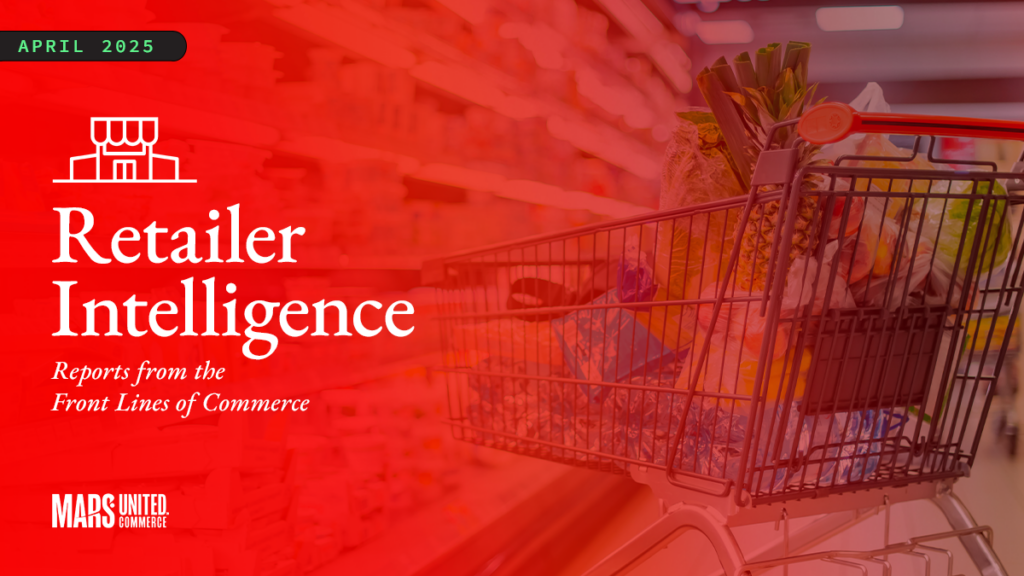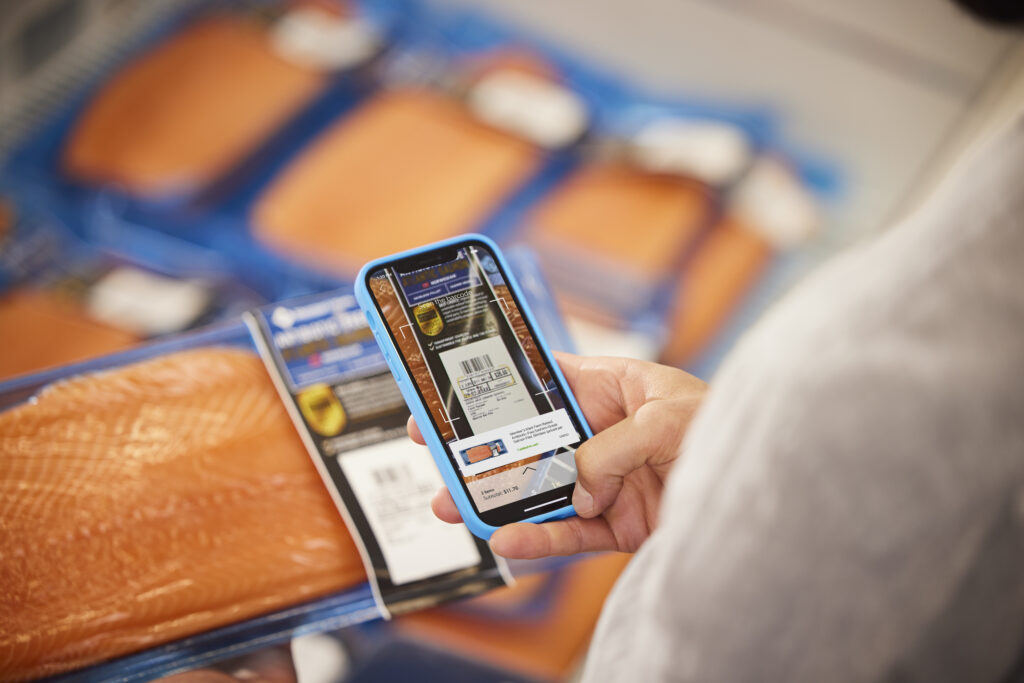As part of their ongoing mission to help clients stay ahead of the competition in a fast-paced, constantly evolving marketplace, The Mars Agency’s Customer Development teams closely monitor the strategic activity taking place across all key retailers and channels. In one example of the retailer intelligence the teams deliver on a regular basis, the following report outlines recent sustainability initiatives at 13 retailers, along with several cases of relevant brand and vendor activity.
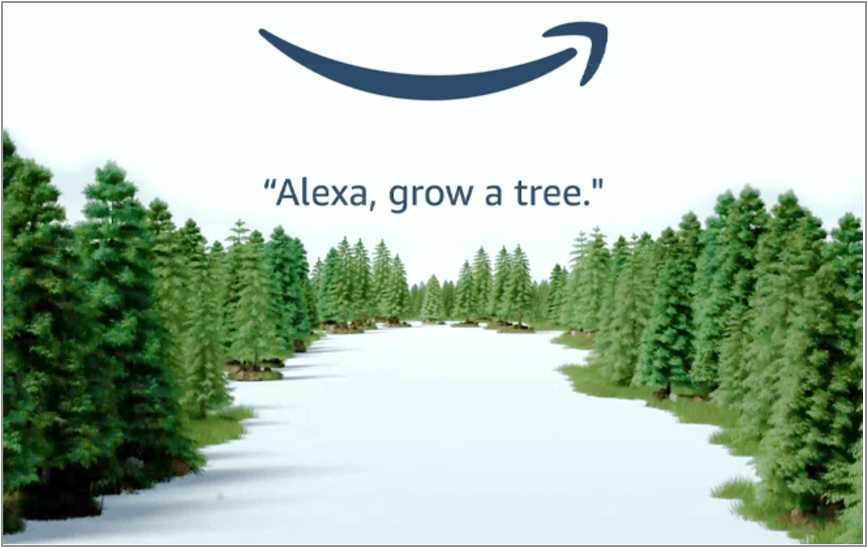
April 22’s official designation as Earth Day (since 1970) again inspired numerous retailers and brands to commemorate the event with relevant campaigns expressing their concern for environmental issues and touting their own sustainability initiatives.
Sustainability continues to grow in importance as corporations increasingly acknowledge the need to adopt environmentally sound business practices — motivated largely by consumers, who are have become more vocal about what they expect from brands and retailers: 61% now say they’ll even pay more for sustainably manufactured products.
That is why many retailers are now leveraging Earth Day not just to conduct short-term seasonal promotions but to showcase the year-round work they’re doing to protect the planet and our future.
The opportunities for brands to get involved in these efforts are plentiful but include:
- Helping retailers achieve their objectives through direct participation in the initiatives.
- Aligning their own internal initiatives with those of their retailer partners for collaborative events and activities.
- Helping retailers build shopper loyalty by driving awareness for their programs through related sponsorships and relevant promotions.
- Enhancing the retailers’ reputation with shoppers by activating programs that showcase their own sustainability efforts.
_________________________
Ahold Delhaize Champions Recycling
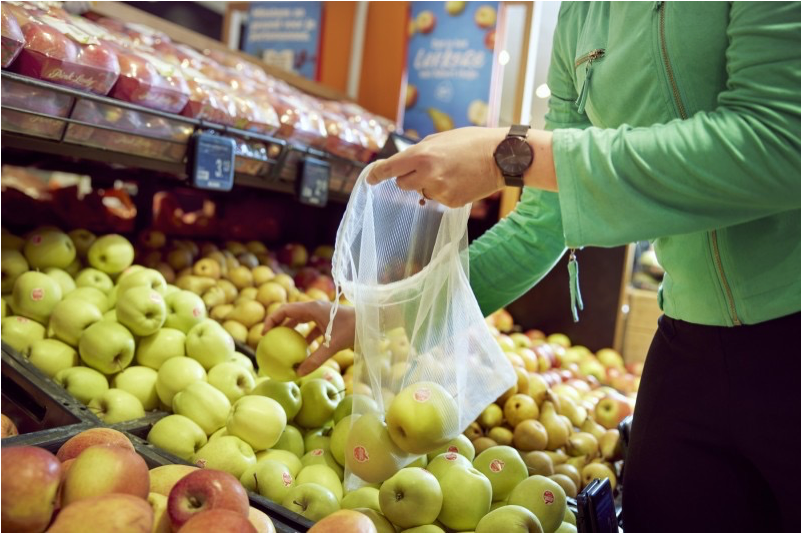
The Story: Ahold Delhaize USA, ExxonMobil and packaging manufacturer Sealed Air have teamed on an advanced recycling initiative that takes flexible plastics from the food supply chain and remakes them into certified food-grade packaging. Billed as the first project of its kind in the U.S., the initiative is expected to launch this summer and scale over time.
Relevance: The collaboration aims to boost the use of recycled content by validating the technical and economic viability of a certified circular system such as this one. Flexible plastics will be designed from the start to be collected, recycled and repurposed into new food packaging, thereby keeping them out of landfills and increasing the number of times they can be recycled — while ensuring the safety and quality of packaged foods.
Opportunity: “Ahold Delhaize has been greatly impacted by the packaging supply constraints that we’ve all experienced in the last few years,” says VP-Customer Development Jeff Arquette, who oversees regional supermarkets for The Mars Agency. “They’re taking a ‘hands on’ approach to helping the environment thrive but also to keep packaging materials moving. Brands should consider how they can get involved.”
_________________________
Giant Co. Thinks Local and Global
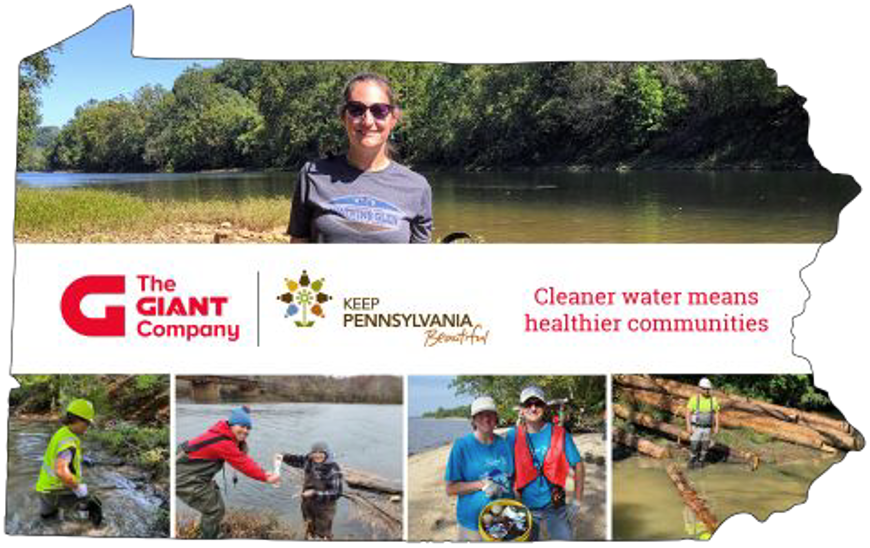
The Story: Ahold Delhaize division The Giant Company pledged $300,000 in grants toward projects dedicated to restoring the health and quality of Pennsylvania waterways in 2022 through a partnership with Keep Pennsylvania Beautiful.
Relevance: Giant is showing a commitment to sustainability both inside and outside their stores. Aside from contributing these waterway betterment grants, the retailer is involved in plastic bag recycling, plastic reduction efforts, zero-waste initiatives, creation of a solar field, development of a bee pollinator habitat, installation of energy-efficient store fixtures, and sourcing sustainable seafood, coffee and tea. Shoppers are encouraged to support these green initiatives by “rounding up” their receipts at the register.
Opportunity: “The Giant Company is showing a commitment to better its own operating region as well as the overall the global environment,” says Arquette. “These initiatives will establish loyalty with environmentally conscious shoppers and could very well affect the retailer’s marketing themes moving forward.”
_________________________
Hannaford Fast Tracks Renewable Energy
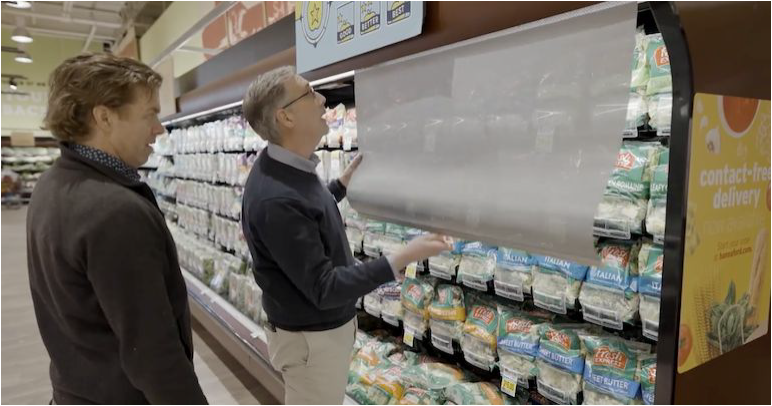
The Story: To improve the way it currently uses energy and reduce consumption, Ahold’s Hannaford chain has undertaken efficiency installations such as LED lighting and modernized, improved refrigeration practices. The chain has also installed rooftop solar panels at 10 stores. The goal is to achieve 100% renewable energy by 2024.
Relevance: TrendHunter’s 2022 Industry Trends & Insights reports that CPG products marketed around sustainability themes consistently outperform conventionally marketed products.
Opportunity: “With consumer shopping habits placing more importance on sustainability, partnering with sustainable retailers can increase awareness for brands and win over a whole new audience — not to mention your retailer partners,” says Arquette.
_________________________
Albertsons Cooks Up a ‘Recipe for Change’
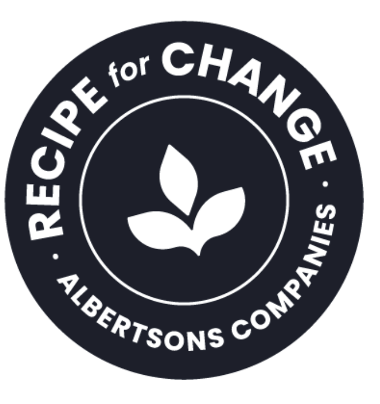
The Story: To advance its environmental, social and governance (ESG) goals, Albertsons has developed an overarching new “Recipe for Change” framework that includes key sustainability initiatives such as:
Planet Preservation: Carbon emissions reductions that lead to net-zero emissions throughout its operations by 2040.
Packaging Waste Reductions: All Own Brands packaging will be 100% recyclable, reusable or industrially compostable and include 20% recycled content by 2025.
Food Waste Reduction: Zero food waste going to landfills by 2030, along with significant reductions in plastics and packaging.
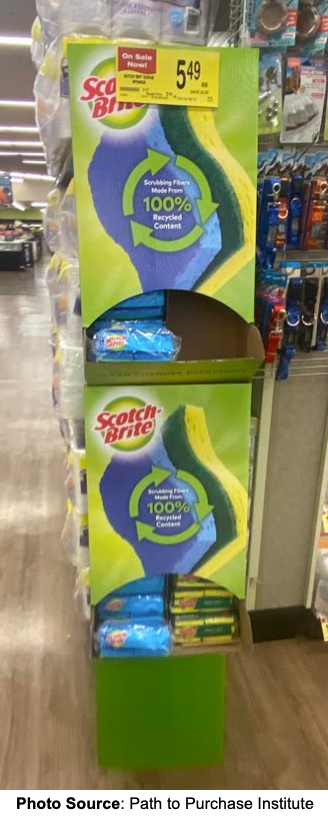
Relevance: With shopper expectations for retailers to adopt sustainable practices steadily growing, it was important for Albertsons to clearly articulate a more assertive plan for the future.
Opportunity: “Albertsons will be looking for ways to share its sustainability pledges to shoppers, which gives brands a great opportunity to do the same, either in partnership with the retailer or through their own assets,” says Arquette.
In the example at right, the only message that Scotch-Brite delivers through this shipper display is the fact that its sponges are made from 100% recycled materials.
_________________________
Alexa Adds Her Voice
The Story: Customers in the U.S. with an Alexa-enabled device can now say, “Alexa, grow a tree” and make that happen through an automatic $1 donation to nonprofit One Tree Planted. Participants can keep track and view how many trees they’ve help plant through their Amazon Pay account. The retailer itself donated $1 million to the cause.
Relevance: In a 2021 survey from Simon-Kucher & Partners, 60% of shoppers identified sustainability as an important factor in purchase decisions. Consumers no longer simply want brands to be eco-friendly; they now expect them to be.

Opportunity: “Brands should take advantage of Amazon’s Climate Pledge Friendly program,” which recognizes products that have made improvements in of 34 aspects of sustainability,” suggests SVP John Willkom, who heads The Mars Agency’s ecommerce practice. “All eligible receive a badge that will help boost their visibility in search results while aligning with growing shopper preferences for sustainable products.”
_________________________
Best Buy Amps Up the Energy …
The Story: BestBuy.com now boasts a savings tracker that lets shoppers understand the collective environmental and financial impact that purchases of ENERGY STAR appliances at the retailer are having. The website also presents real-life case studies so potential customers can get an even clearer picture; for instance, the estimate amount of water that customers this year by buying government-certified ENERGY STAR appliances will fill more than 25 million bathtubs!

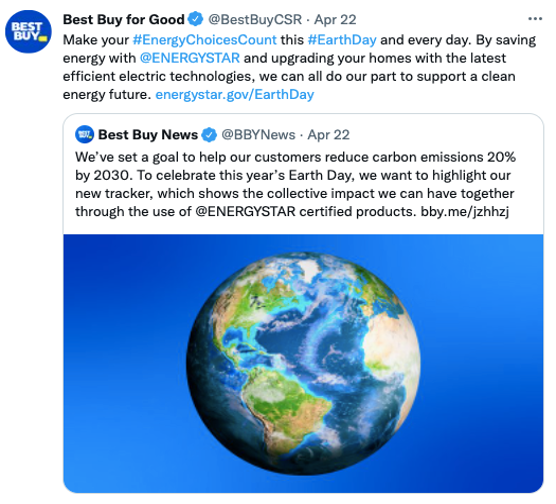
Relevance: Best Buy continues to put sustainability at the forefront of everything it does. The retailer has set a goal to help customers to reduce their own carbon emissions 20% by 2030 through the use of ENERGY STAR-certified products.
Opportunity: “Best Buy is committed to sustainability and helping customers live more sustainable lives, so brands need to deliver innovative products and programs that align to these goals,” says Meghan Heltne, SVP-Customer Development for The Mars Agency in Minneapolis. “Think energy-efficient devices, reusable products, or educational programs that help customers live more sustainably.”
_________________________
… And Hauls if you Call

The Story: Best Buy’s new Standalone Haul-Away service provides in-home pickup of old electronics and appliances (for a fee of $199.99). The products are then responsibly and safely recycled, keeping them out of landfills and giving them a second life. Consumers don’t need to purchase a new item from the retailer to use the service, but customers who do utilize Best Buy Totaltech for new-product delivery and installation get a 20% discount.
Relevance: Sustainability has been at the core of Best Buy’s business model for decades. The retailer is committed to being a world leader in protecting the environment, having reduced carbon emissions by 61% and recycled 2 billion pounds of electronics and appliances since 2009. The new Haul-Away service extends Best Buy’s longstanding practice of removing (and recycling) old items when delivering their replacements.
Opportunity: “Brands should find ways to help Best Buy continue achieving its goals for protecting the environment by developing sustainable packaging and even eco-friendly products,” recommends Heltne. “In one key initiative, the retailer has pledged to help customers realize $5 billion in energy savings by 2030. Relevant brand partners can help Best Buy get there by working with their merchant and marketing teams to build energy-efficient innovation pipelines, and then promoting those products through Best Buy Ads and external channels.”
_________________________
CVS Health Zeros In …
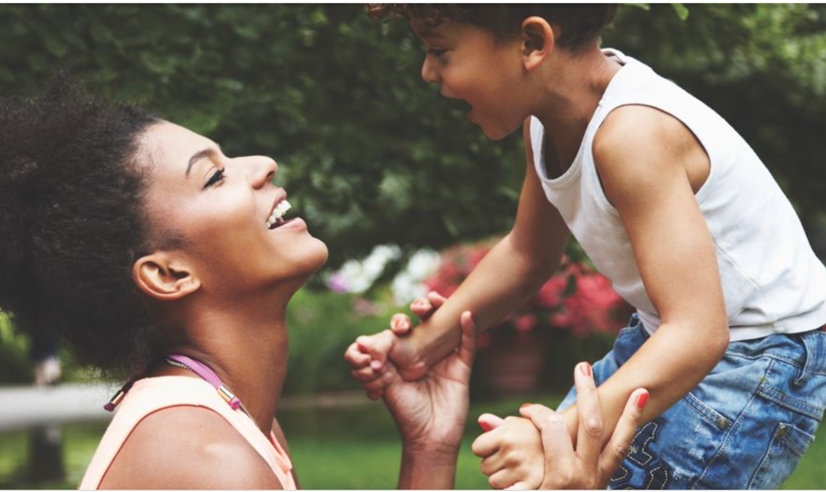
The Story: On April 1, CVS Health released an Environmental, Social and Governance Report that details how the company is working to help create a healthier, more sustainable world by 2030.
Relevance: The report highlights the company’s current priority areas, which include:
- Diverting 50% of waste to recycling or reuse.
- Implemented efficiency programs to reduce energy consumption as part of a goal to achieve net-zero greenhouse gas emissions by 2050; CVS became one of the first companies to have its net-zero plan validated by the global nonprofit Science Based Targets initiative (SBTi), which provides guidance to corporations.
- Delivered over $2.5 million in value through employee volunteerism with relevant nonprofits.
- Provided 159 million meals for food-insecure people through a partnership with Feeding America.
Opportunity: “We’ve always worked with clients to focus their efforts on “Health” at CVS,” explains VP-Customer Development Barb Seman, who oversees small format channels for The Mars Agency. “The definition of health has now expanded to include a healthy environment, and there are huge opportunities in recycling and sustainability efforts as well.”
_________________________
… and Scales Back
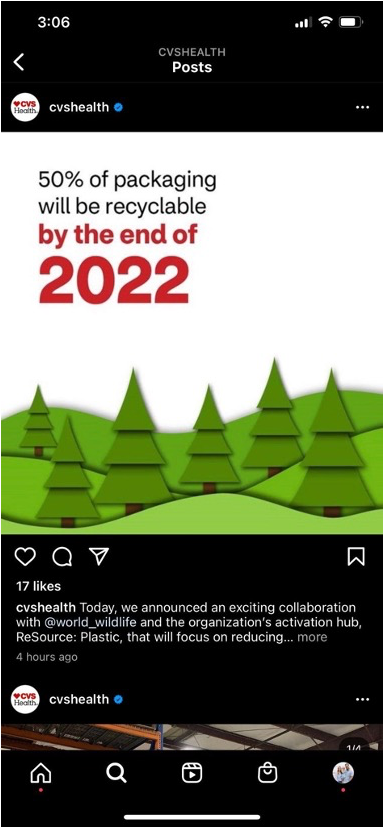
The Story: Elsewhere, CVS Health is collaborating with the World Wildlife Fund as the Principal Retail Member of the nonprofit’s ReSource: Plastic program, a three-year-old effort to quantify corporate impact and track company actions and opportunities to prevent plastic waste.
Relevance: CVS Health engaged WWF to audit its store brand packaging and help determine new sustainable goals. Now focused on reducing the use of plastic and ensuring recyclability for all packaging, CVS will annually measure its plastic and paper packaging inputs to meet key goals.
Opportunity: Alongside their efforts to ensure “unaltered images” in beauty marketing and transparency in the reporting of product ingredients, sustainability in general and plastic waste reduction in particular are now priority for CVS, and they will be looking for CPG partners to adopt similar standards,” says Seman.
_________________________
Circle K Sources from Farmstead
The Story: Circle K is teaming up with online grocery seller Farmstead to offer locally sourced fresh produce for delivery. While primarily an eCommerce play that expands the convenience chain’s assortment into new areas, the partnership also helps the c-store chain move into the home delivery space through Farmstead’s tech stack.
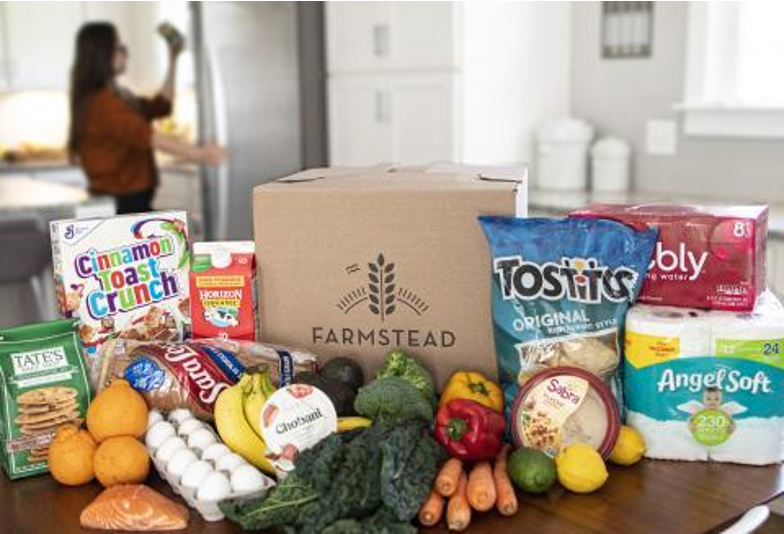
Relevance: The Farmstead model promises to reduce food waste by using artificial intelligence technology to only buy exactly enough to fulfill orders. Sourcing from local producers also theoretically reduces the carbon footprint associated with distribution. Deliveries also are grouped by neighborhood to further reduce emissions.
Opportunity: ”Finding ways to leverage this partnership could let brands address three growing shopper behaviors at once: healthier eating, sustainability and home delivery,” says Seman.
_________________________
H-E-B Celebrates Earth Day …
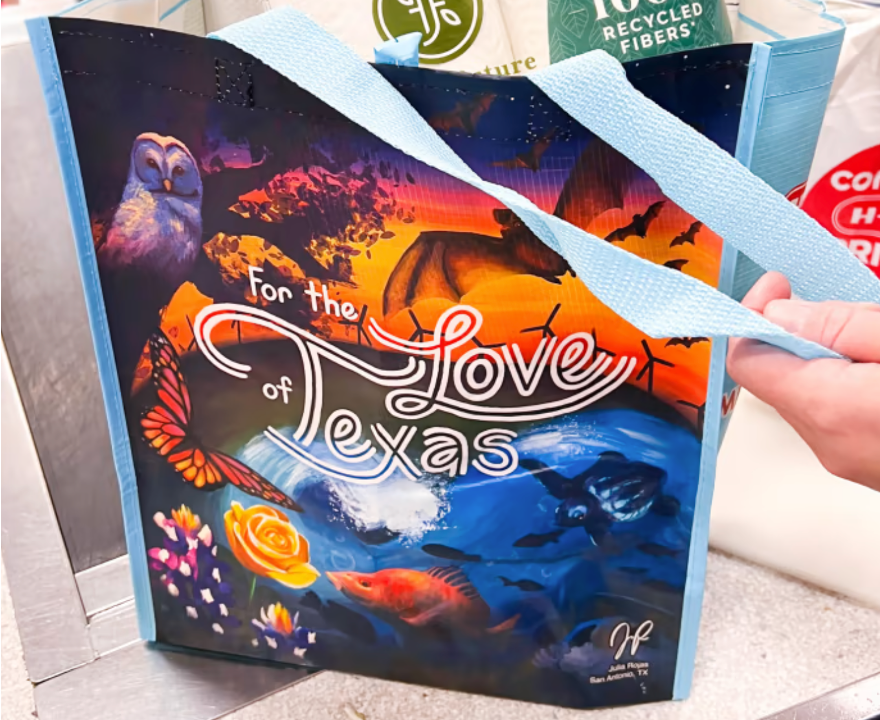
The Story: H-E-B gave away 250,000 reusable grocery totes made from recycled plastic bottles in April in honor of Earth Day. It’s an annual initiative the retailer launched back in 2008 that, to date, has distributed more than 3 million custom-designed reusable bags. Earth Day efforts also encompassed plastic bag-collecting contests at 150 Texas schools and a shopper donation drive benefiting the nonprofit EarthShare of Texas.
Relevance: H-E-B and its employees continue to prove their commitment to environmental sustainability and are actively encouraging shoppers and community members to join them on the mission to “beautify Texas” and take care of our planet.
Opportunity: “Retailer-led sustainability initiatives like these further encourage brands to do their part,” says Arquette. “Brands can leverage their marketing vehicles during April to support Earth Day, but also find ways to encourage environmentally friendly consumer behavior throughout the year.”
_________________________
… And Eyes the Future in Products
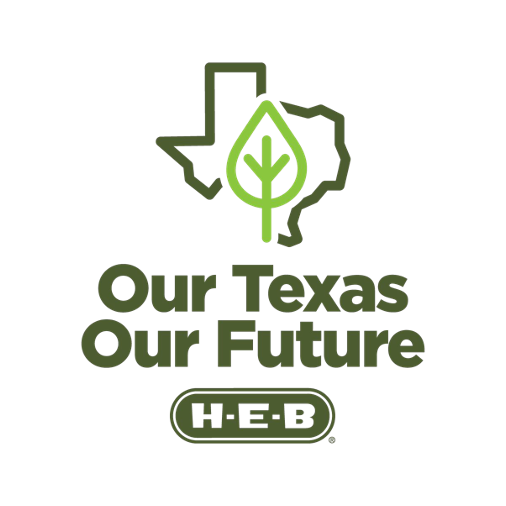
The Story: H-E-B and its environmentally minded Field & Future brand continues to partner with the Texas Parks and Wildlife Foundation to help conserve the state’s wildlife, habitats and natural resources as part of the retailer’s “Our Texas, Our Future” mission.
Relevance: Launched in 2021, the Field & Future by H-E-B portfolio is “designed to be clean and green” and covers household, personal care and baby products. The 100-plus items are made from recycled or recyclable materials, using biodegradable formulas or plant-based ingredients, and free of more than over 165 harsh chemicals. (Packaging, too, is recyclable.)
Opportunity: “H-E-B’s actions suggest that brands shouldn’t just be touting their own actions but using their voices to encourage positive change among consumers as well,” says Arquette. “Partnerships between brands and retailers that have shared values and a shared passion for bettering the planet allow for more impactful/larger scale initiatives.”
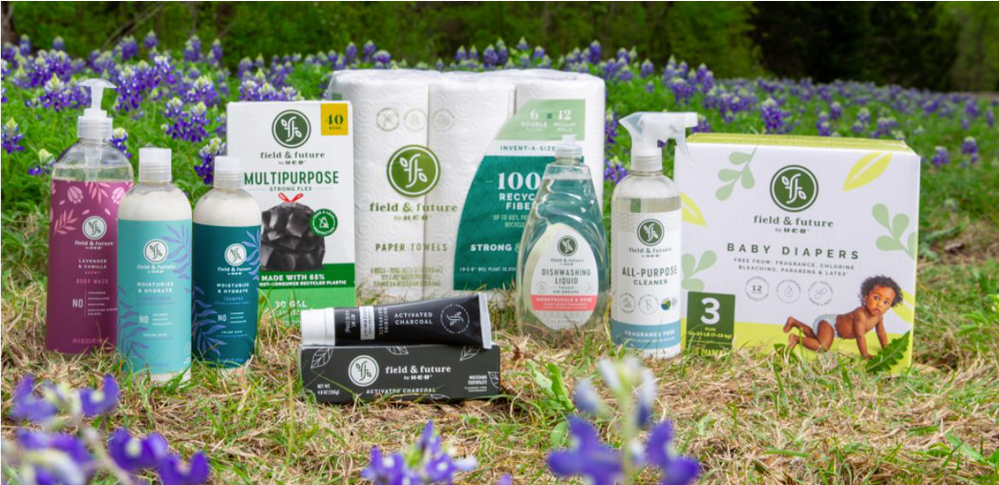
_________________________
Kroger Expands Loop Partnership
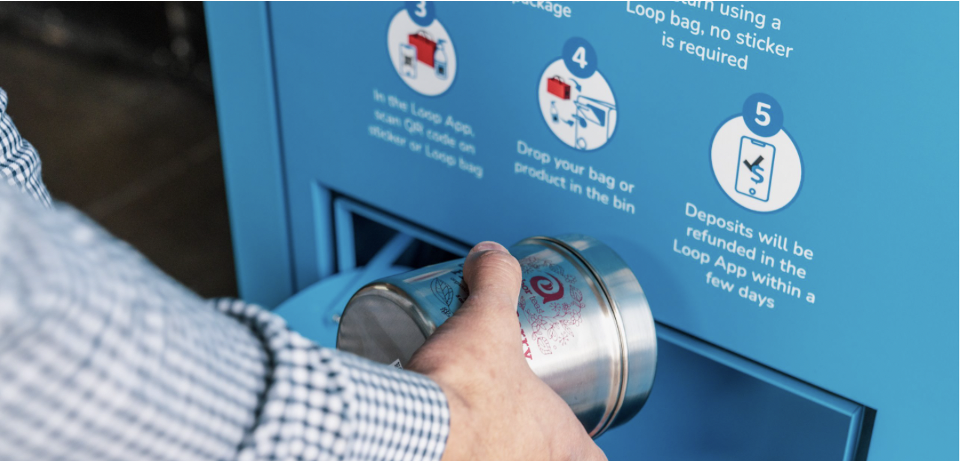
The Story: Kroger recently expanded its reusable packaging platform with partner Loop. Shoppers participate by purchasing items from Loop’s brand partners sold in reusable packaging. They are required to pay a deposit on the product’s reusable container that is refunded later when they return it. Loop then sanitizes the container thoroughly for reuse.
Relevance: Kroger and other grocery retailers are putting a lot of effort into sustainability initiatives to finds ways for themselves and their brand partners to play a larger role in producing environmentally conscious options for consumers.
Opportunity: “Roughly 20 CPGs joined Kroger in launching this unique program, including Procter & Gamble, Unilever, Clorox and Nestle,” explains SVP-Customer Development Brian Higdon, who oversees all grocery channel activity for The Mars Agency. “This particular program might not be for everyone, but sustainability, flexible packaging and reduction of food waste are priorities for Kroger so brands should find ways to help the retailer help its shoppers find sustainable product solutions.”
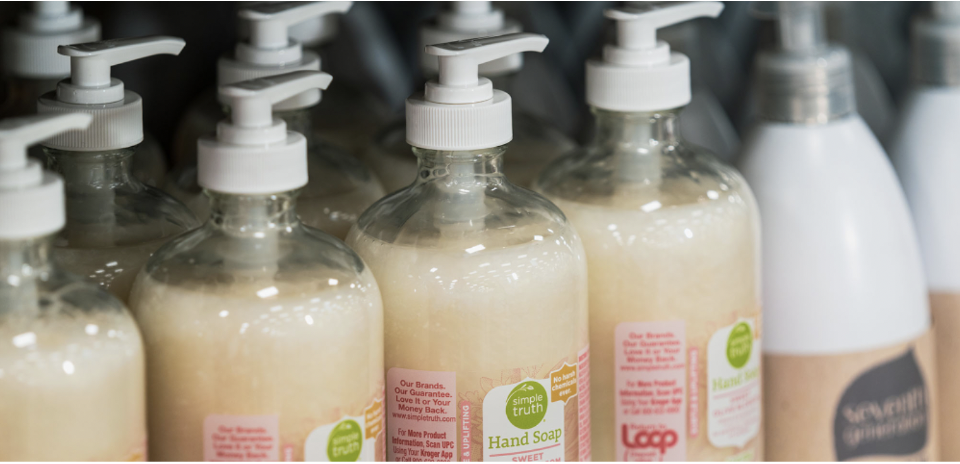
_________________________
Sam’s Club Rewards Electric Drivers
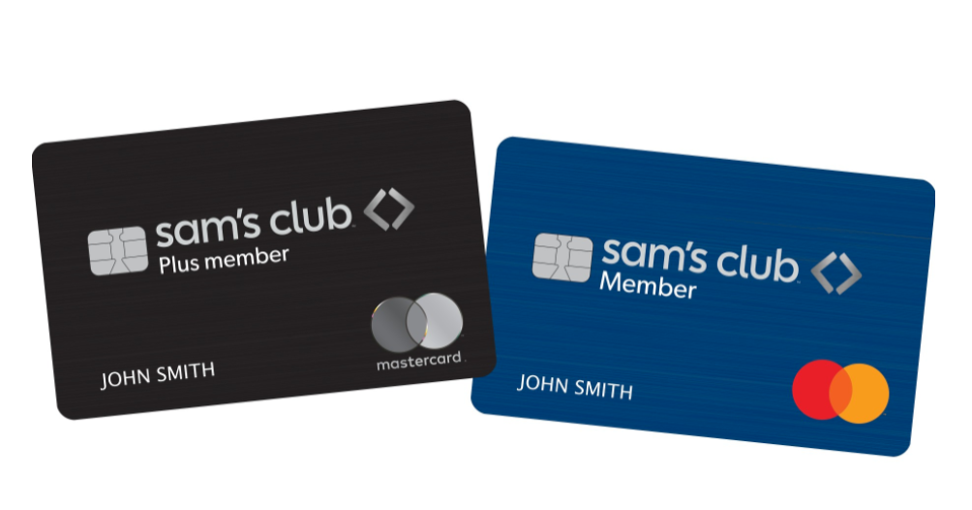
The Story: Sam’s Club and financial services partner Synchrony are rewarding Sam’s Club Mastercard users with electric vehicles by giving them 5% back in ”Sam’s Cash” on their EV charges at eligible stations around the U.S. The program launched with an offer for 10% back throughout May.
Relevance: Sam’s Club is committed to recognizing and rewarding members who are taking steps to lessen their impact on the environment. And corporate parent Walmart has overarching goals to reduce the club chain’s own environmental footprint.
Opportunity: “Brands should similarly look to partner with Sam’s Club to offer members opportunities to earn rewards through eco-friendly actions and purchases,” suggests VP-Customer Development Victoria Van Dusen, who oversees club store activity for The Mars Agency.
_________________________
Keurig Sustains in Both Directions
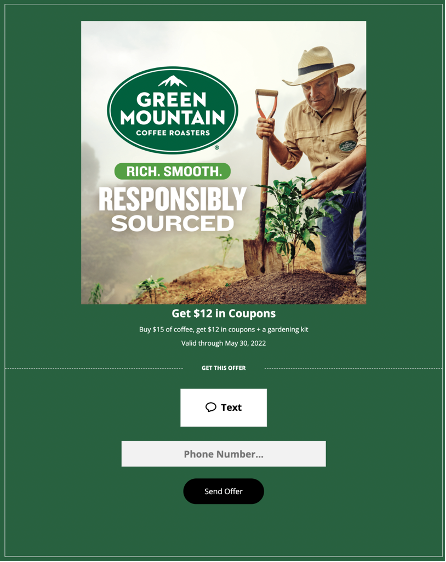
The Story: Keurig Dr Pepper recently promoted Keurig K-Cups and brewers on SamsClub.com with a nod to the brand’s responsible sourcing practices, offering shoppers cash back and a free gardening kit with purchase while promising to make donations to coffee-farming communities.
Relevance: A recent Path to Purchase Institute study found that 75% of shoppers are more likely to purchase sustainable products. Keurig tapped into this trend by giving shoppers a trio of reasons to buy (RTBs) that would let them feel really good about the purchase.
Opportunity: “Understanding customer interests and aspirations helps build better programs that will resonate with shoppers,” says Van Dusen. “And pairing up brand RTBs with retailer priorities can help secure incremental placement and added goodwill with buyers.”

________________________
SEG Pledges Sustainable Packaging
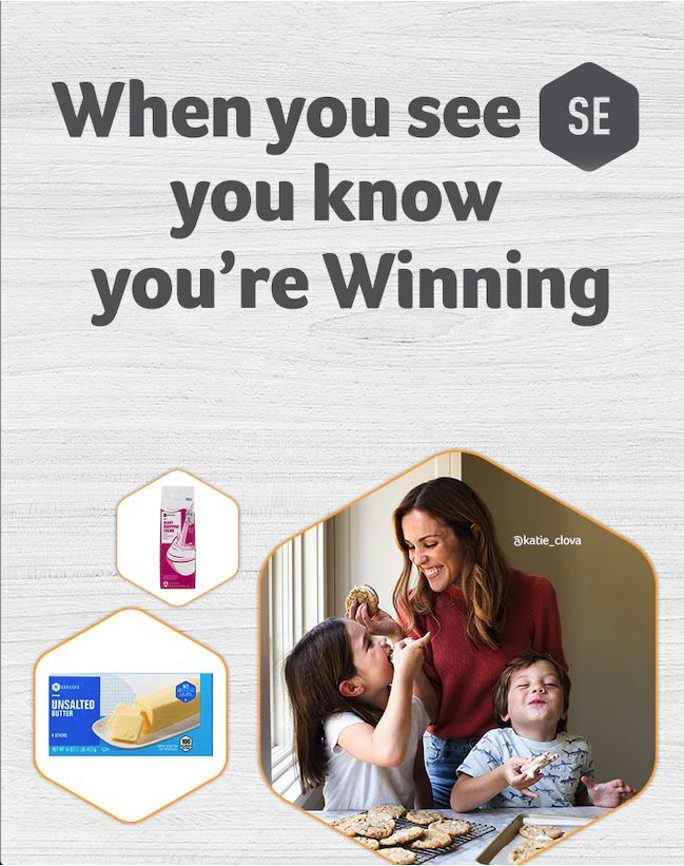
The Story: Southeastern Grocers announced a commitment to make own brand packaging more sustainable by the end of 2028. The plan includes eliminating the use of polystyrene and incorporating an average of 30% post-consumer recycled material in all packaging, which at the very least will all be reusable, recyclable or industrially compostable.
Relevance: Winn-Dixie is recognizing the importance of having a sustainability plan, which also involves a recently announced partnership with How2Recycle.info that is included in the retailer’s messaging.
Opportunity: “If you haven’t gotten the message yet, sustainability has moved from a point of differentiation to table stakes,” says Arquette. “Communicating your sustainability programs in ways that will be clear to shoppers will be vital in showing value to shoppers going forward.”
_________________________
Sprouts Hosts School Garden Summit
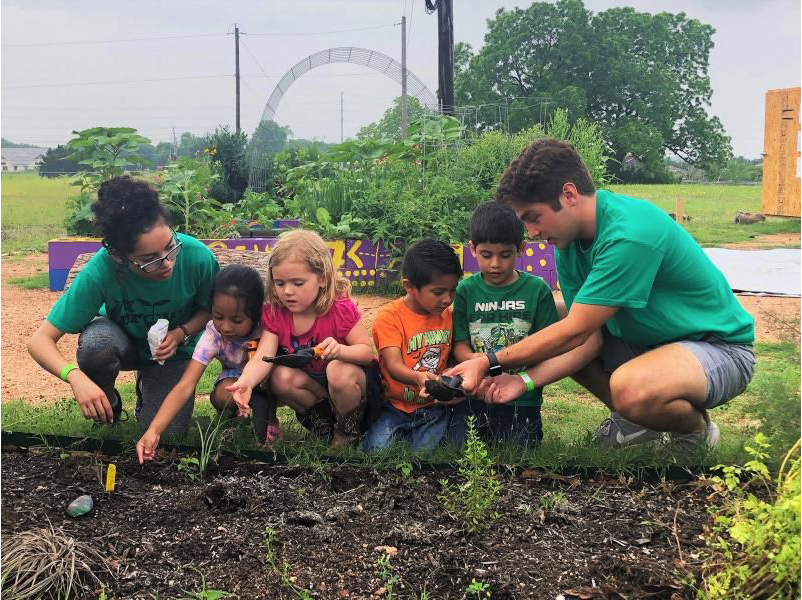
The Story: Natural and organic grocer Sprouts Farmers Market supported the school garden movement by hosting its first Growing School Gardens Summit in Denver over Earth Day weekend. An initiative of the Sprouts Healthy Communities Foundation and starting on Earth Day, the summit featured workshops and lectures, field trips to local school gardens, and a program to support young professionals in the field.
Relevance: Studies are identifying the many benefits of student participation in school garden programs (for both the individuals and the environment), which is leading more schools to invest in these outdoor learning spaces. Last fall, the Sprouts Healthy Communities Foundation provided $3 million in grants to 115 nonprofit organizations to improve related education.
Opportunity: “Sprouts has focused the Foundation’s efforts on improving nutrition education for children, and it is actively looking for support for CPG partners that are a strategic,” says Arquette.
_________________________
Target Suits Up with ThredUp
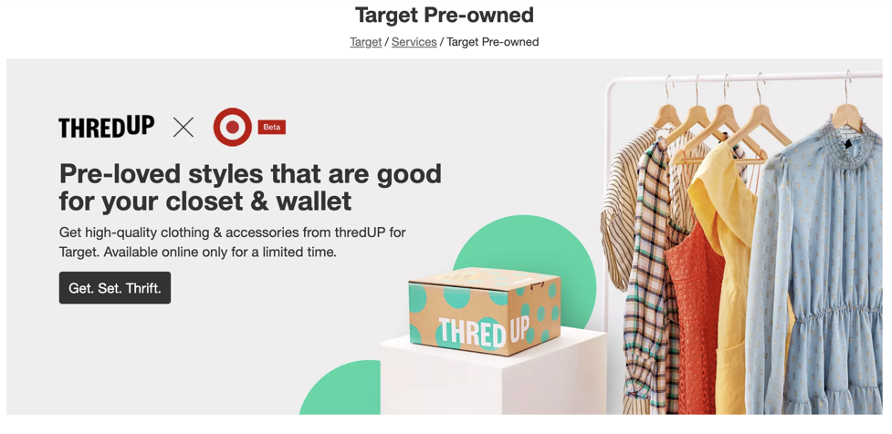
The Story: Target has reunited with secondhand apparel company ThredUp (after a test back in 2015) to offer a curated selection OF nearly 400,000 pieces of pre-owned women’s and kids’ apparel and accessories from Target-owned brands (like Cat & Jack, Universal Thread and A New Day). The items are being sold at discounts of up to 90% off the original retail price.
Relevance: The second time could be a charm for this Target-ThredUp partnership, since the demand for sustainable product options has heated up considerably since 2015. The current beta experience is housed off-site on Thredup.com and offers more than just the Target items, evidence that the retailer is more interested in progress than perfection right now.
Opportunity: “The world is a different place than it was in 2015, and guests are ready for bigger moves toward sustainability,” says Heltne. “Can apparel brands available on ThredUp join Target in the effort? We will be watching closely.”
All in all, Target’s marketing push around Earth Day was lighter than expected this year — maybe because the retailer has been working hard to make sustainability an everyday activity. Read a full report here.
_________________________
Walmart Launches ‘Circular Connector’ …

The Story: Walmart’s new Circular Connector is an online tool designed to help product manufacturers and other suppliers find sustainable packaging providers — or more nobly, to “help accelerate packaging innovation and its implementation … [by making] it easier for sourcing teams and brand companies to quickly find sustainable packaging solutions — enabling us all to move faster together on reducing waste from our communities, our oceans and our environment,” as Ashley Hall, Walmart’s Director of Strategic Programs, wrote in introducing the service.
Relevance: Walmart has previously set a goal to achieve 100% recyclable, reusable or industrially compostable packaging for its private brands by 2025. To do so, it will need help finding the various sustainable packaging solutions in the marketplace. Companies are being encouraged to submit their solutions for screening; those that align with the retailer’s own goals will be published publicly later this year and shared with all Walmart private brand associates and suppliers for consideration. “Innovation is essential to achieving our goals and our customers’ growing expectation to buy sustainable/sustainably packaged products,” Hall said.
Opportunity: “Walmart is pretty clearly providing direction for their brand partners. Talk to them about any sustainable packaging solutions you’ve identified, and later take advantage of the options Walmart shares when they become available,” says Van Dusen, who also oversees The Mars Agency’s Walmart activity. “And find ways to highlight your innovations through your Walmart programs.”
________________________
… Steps Off the Gas …

The Story: Walmart recently celebrated a major milestone when it reach the halfway point in its goal of reducing or avoiding 1 billion metric tons — a gigaton — of greenhouse gas emissions from product supply chains by 2030. Since its 2017 launch, the trademarked “Project Gigaton” initiative has engaged more than 4,500 suppliers who have reported a cumulative total of roughly 574 million metric tons reduced or avoided.
Relevance: Most greenhouse gas emissions in the retail sector are generated by product supply chains, which are classified as Scope 3 emissions. (Scope 1 emissions are the direct result of a company’s operations, Scope 2 the indirect result of purchased energy such as electricity.) Walmart designed Project Gigaton “to catalyze and support supplier initiatives to decarbonize product supply chains” and since then have expanded the initiative to focus action in six key arenas: energy use, nature, waste, packaging, transportation and product design. For each arena, the retailer provides calculators that describe potential changes in business practices and translate them into emissions impact based on guidance from authoritative bodies. In 2021, supplier participants represented more than 70% of U.S. product net sales.
Opportunity: “Brands that aren’t already involved in Project Gigaton shouldn’t sit on the sidelines any longer,” advises Van Dusen. “And if you are involved, find ways to share the good news with Walmart’s shoppers — check into gaining “Built for Better – For the Planet” designation for your products.”
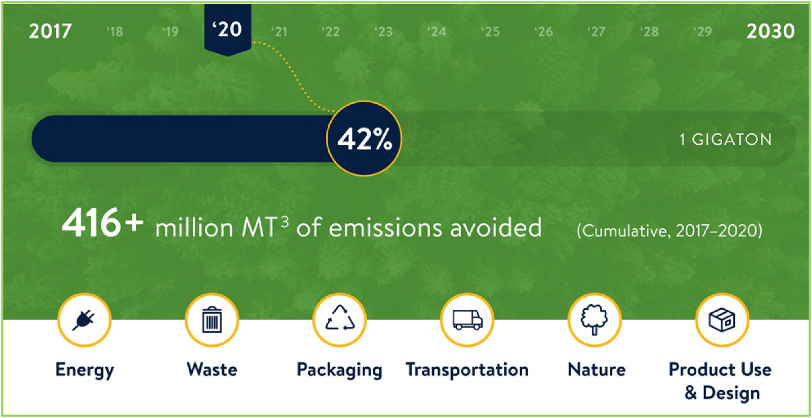
________________________
… and Simplifies Recycling
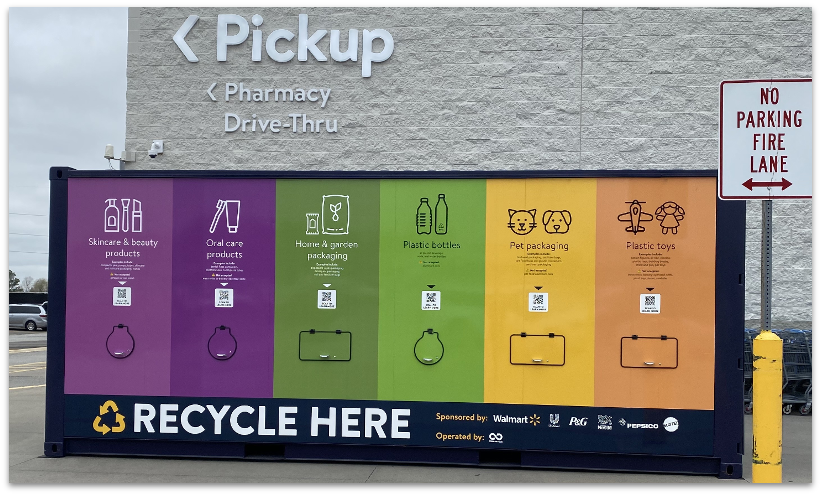
The Story: The Retailer is placing one-stop Community Recycling Hubs in parking lots to provide a disposal solution for everything shoppers can’t recycle through their own curbside bins. The bins are a partnership with TerraCycle, which is transporting the donated materials to its own recovery facilities for recycling into raw materials to be used in new products. QR codes on the Hub direct shoppers to terracycle.com to learn what items can be dropped off.
Relevance: Consumers increasingly want to spend their money at retailers that align with their own values. Walmart was already known for recycling plastic shopping bags, and through this initiative can also earn a reputation for broader recycling efforts.
Opportunity: “Walmart is committed to developing sustainable practices for itself and for its shoppers, and this topic is fertile ground for brand engagement,” says Van Dusen. “Last fall, BlueTriton Brands activated its own Made Better Pledge regional sustainability program with a product showcase on walmart.com.
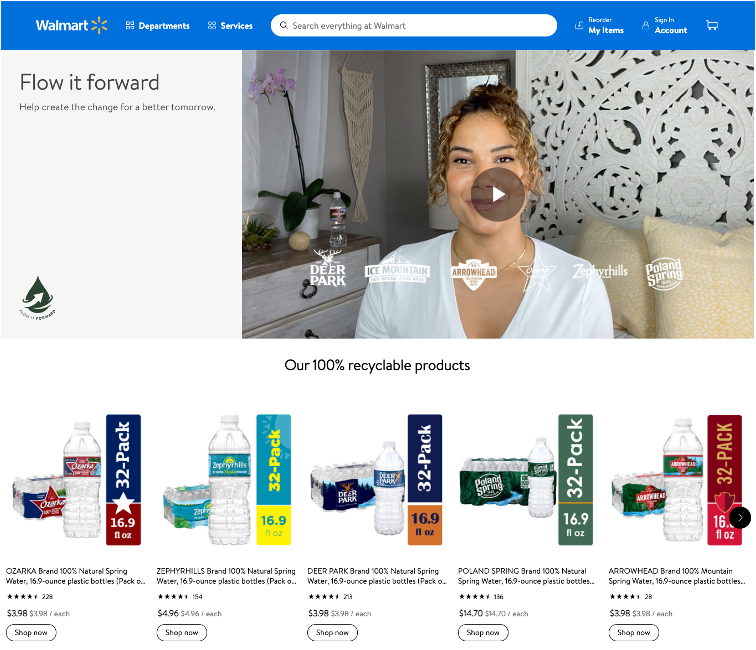
________________________
The Mars Agency’s Customer Development practice is an unrivaled team of in-market commerce experts who simplify the complexity of retail. Located in Bentonville, Minneapolis, Cincinnati, Chicago, Tampa and the “backyards” of other key retailers, they provide deep knowledge of the retailer, expertise in key business areas (like strategy, media and creative), and door-opening personal relationships with key executives to deliver an unmatched level of business success for clients across accounts, channels and shopper engagement platforms. For more information, contact Group SVP Kandi Arrington at [email protected].

